Carlos Ghosn press conference live: Ghosn accuses Nissan and Japan of collusion
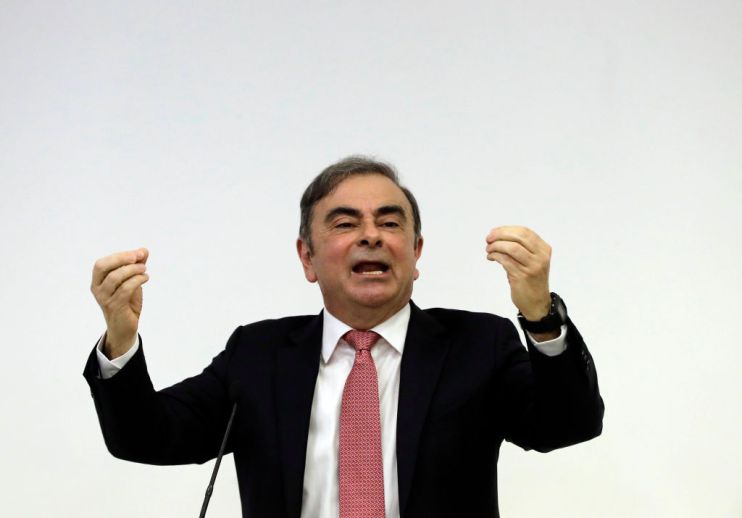
Please manually refresh this page for our latest updates from Carlos Ghosn’s Beirut press conference.
Carlos Ghosn’s sensational escape from the Japanese legal system at the end of December made him one of the world’s most sought-after international fugitives.
Today, the former Nissan boss speaks to the world’s media, with a promise to dish the dirt on an alleged plot between Nissan and Japanese authorities to bring him down.
Read more: How Nissan’s fugitive ex-boss escaped Japan
Read more: Former Nissan boss ‘took bullet train’ out of Tokyo
Read more: Arrest warrant for Carole Ghosn labelled ‘pathetic’
3.38pm: ‘Unusual’ if Japan allows Lebanon to try Ghosn
This from Michael Potts, a senior partner at Byrne and Partners law firm, on Ghosn’s request to be tried in Lebanon rather than Japan:
“It would be highly unusual for a first world country such as Japan to accede to a request to allow another country (that has no other locus to the actual offending) to try the offender on behalf of that first country.
“It would set a dangerous precedent for countries who regard it as their right to try offending on their soil to take this type of step given that it would signal to all would-be offenders that they could, in the right circumstances, choose to forum shop for the “justice” that they desire.”
3.24pm: Carlos Ghosn concludes marathon press conference
And we’re done! Ghosn closes the questioning after 144 minutes.
He spoke four languages, named and shamed a number of Nissan’s board of directors for “plotting” against him, and likened his plight to Mission Impossible.
Ghosn refused to give details about his escape, but ended proceedings by describing his feelings during his escape.
He said: “I’ve been in a kind of nightmare for 13 months.
“It started when I saw the face of the prosecutor, and it ended when I saw the face of my wife.”
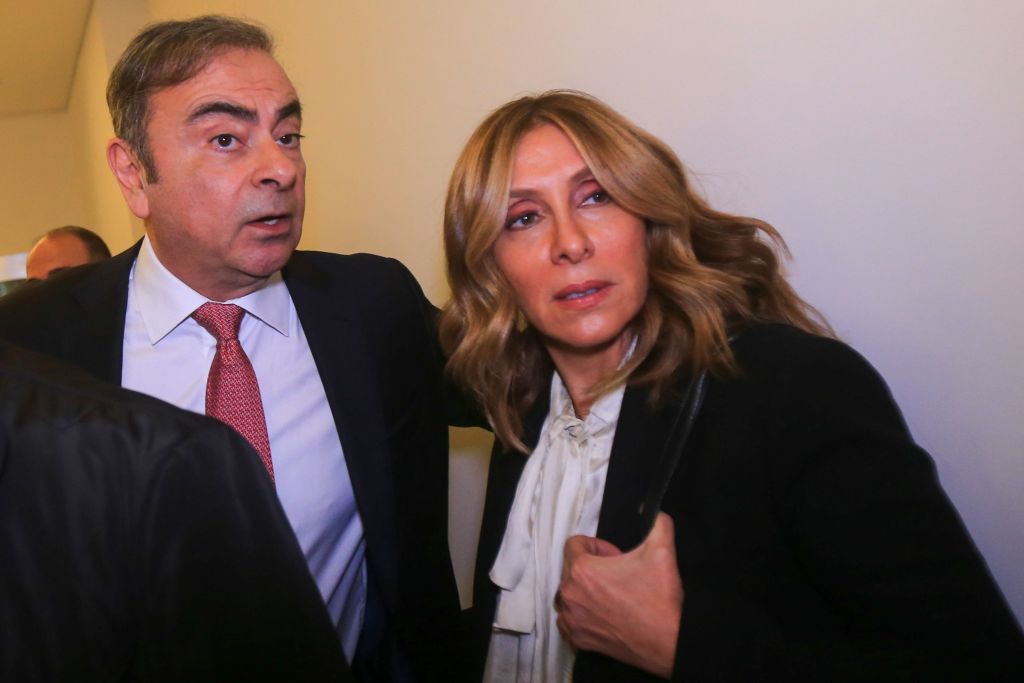
3.12pm: ‘I didn’t escape because I was guilty’
We’re still going.
Ghosn has been answering questions in French, Arabic, Portuguese and English. He says he thinks he would have a fair trial in any of the three countries of which he is a citizen – France, Brazil and Lebanon.
He says he should not be considered guilty because he refused to face justice in Japan.
“I didn’t escape because I was guilty. I escaped because I had zero chance of a fair trial.”
When people assume there is no smoke without fire, he says, it “always gives advantage to those who attack you”.
2.50pm: Gallery – the best pictures from the press conference
Ghosn is now answering questions in French – which gives us the opportunity to present a gallery of the best pictures of the dramatic appearance.
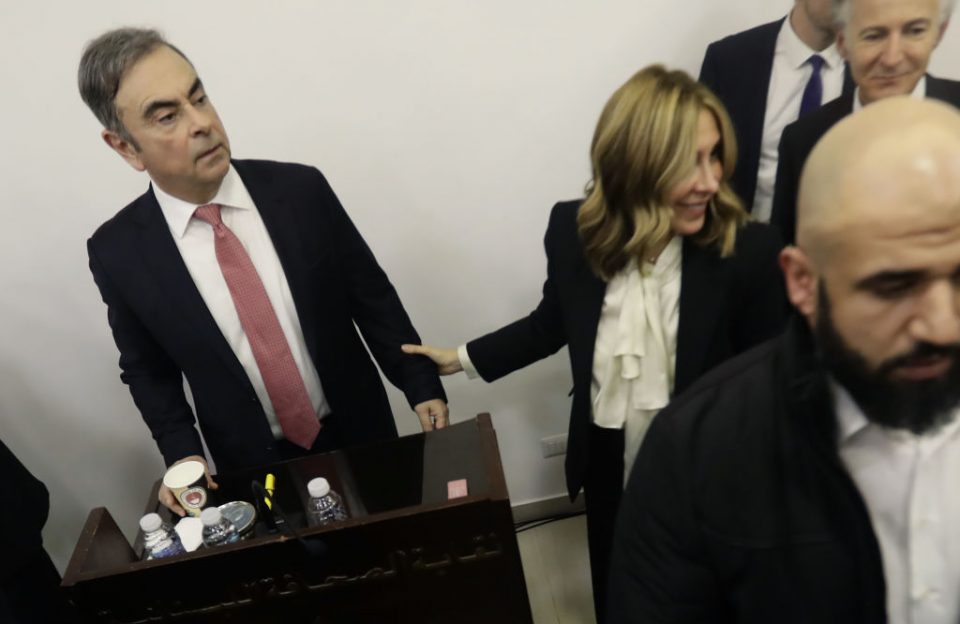
Ghosn and his wife, Carole (Credit: Getty) 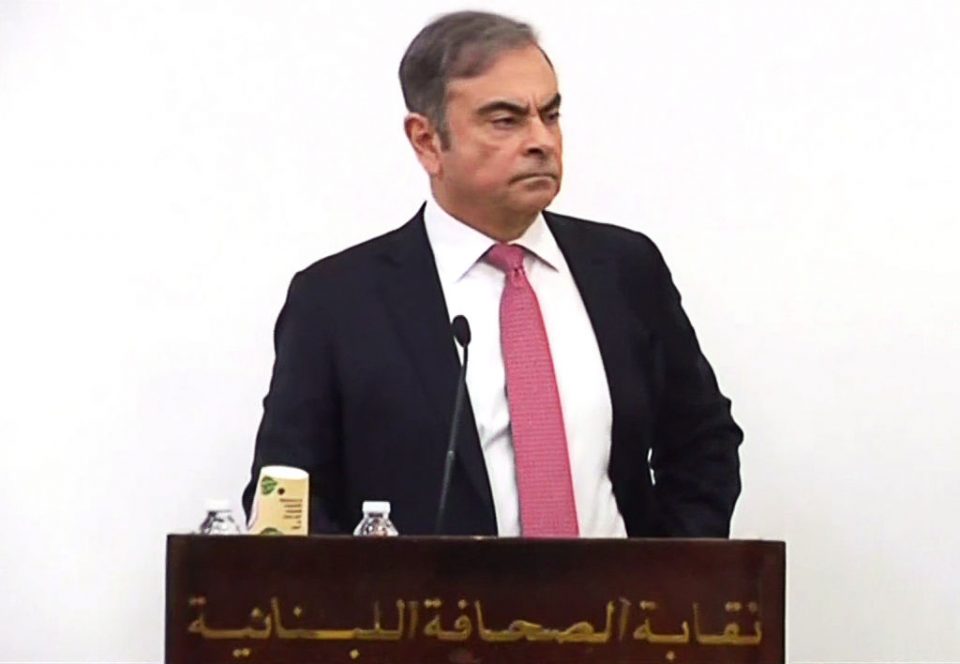
(Credit: Getty) 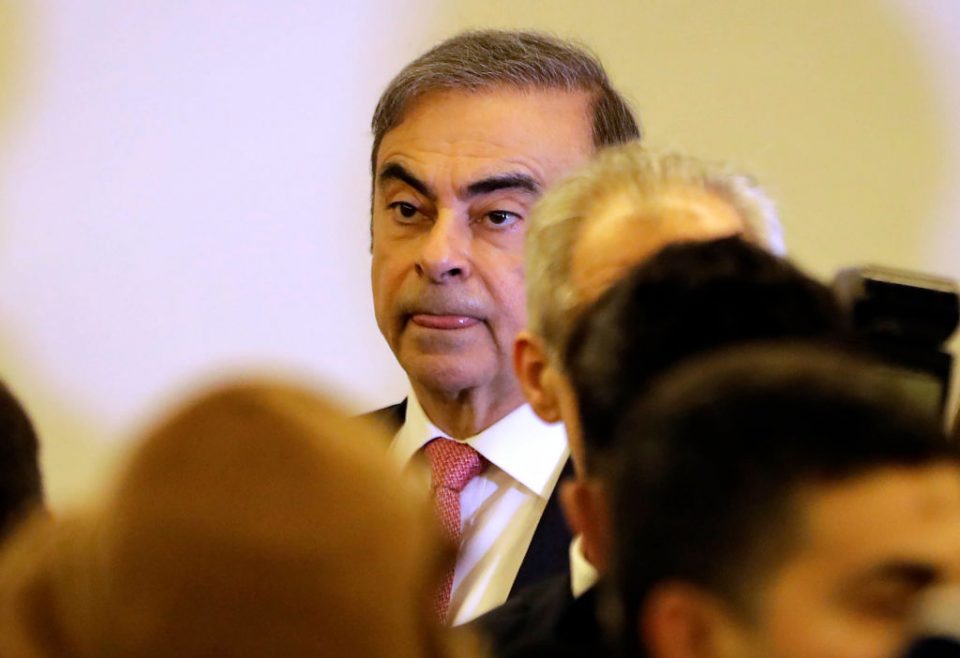
(Credit: Getty)
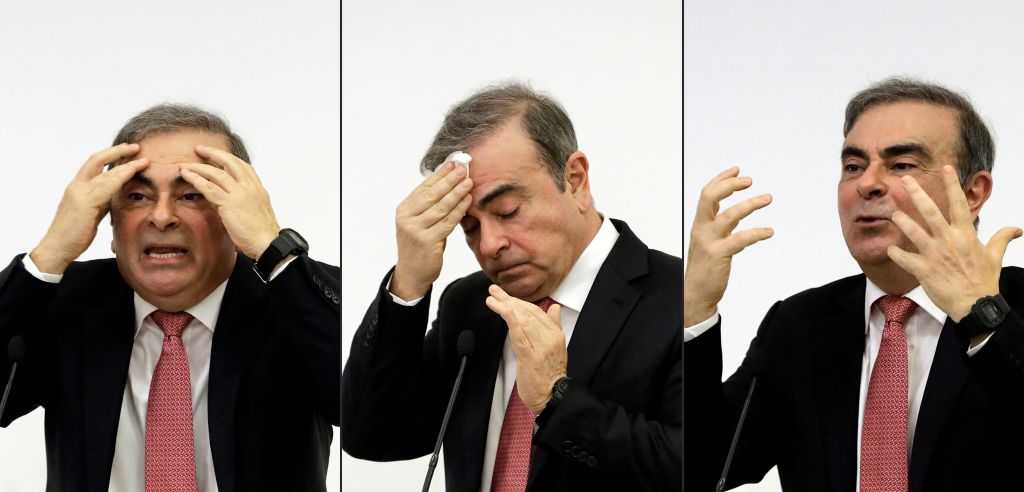
2.45pm: Ghosn says ‘plot’ does not extend to Japanese PM
Carlos Ghosn is asked by the BBC whether he thinks the alleged plot against him extends to the very top of Japan’s government, to Prime Minister Shinzo Abe.
He replies in the negative – he does not believe Abe was in on the claimed plan to oust him.
However, he will not say how high he believes it reaches.
He adds that he is ready for a trial “anywhere I can receive a fair trial”.
2.35pm: Ghosn confident he will not be extradited
Ghosn is asked whether he has assurances from the Lebanese authorities that he will not be taken out of the country – he says he has none.
“I have no assurance off anybody but … I trust the laws existing in Lebanon will be implemented.
“I am confident the existing practices and the laws will be respected in Lebanon.”
Reminder: During this press conference Lebanon’s public prosecutor general has summoned him for questioning tomorrow.
He is now answering a question from Japanese broadcaster TV Tokyo.
“I still think I am, for at least part of the population, a respected businessman in Japan.
“How can I defend myself when I am denied justice?”
He is reminded that he broke the law to escape the country.
Ghosn says: “Breaking the law in Japan because I got out of Japan is a problem, but isn’t it a bigger problem that the prosecutor broke 10 laws?”
2.25pm: ‘I am used to Mission Impossible’
Ghosn is asked whether he would risk travelling to France, despite an Interpol red notice being served against him. Or is he resigned to life as an international fugitive?
I am “used to Mission Impossible”, he replies, citing his many successes against the odds in the car industry.
“I don’t consider that I cannot do anything. I can do a lot, and I am going to clear my name.”
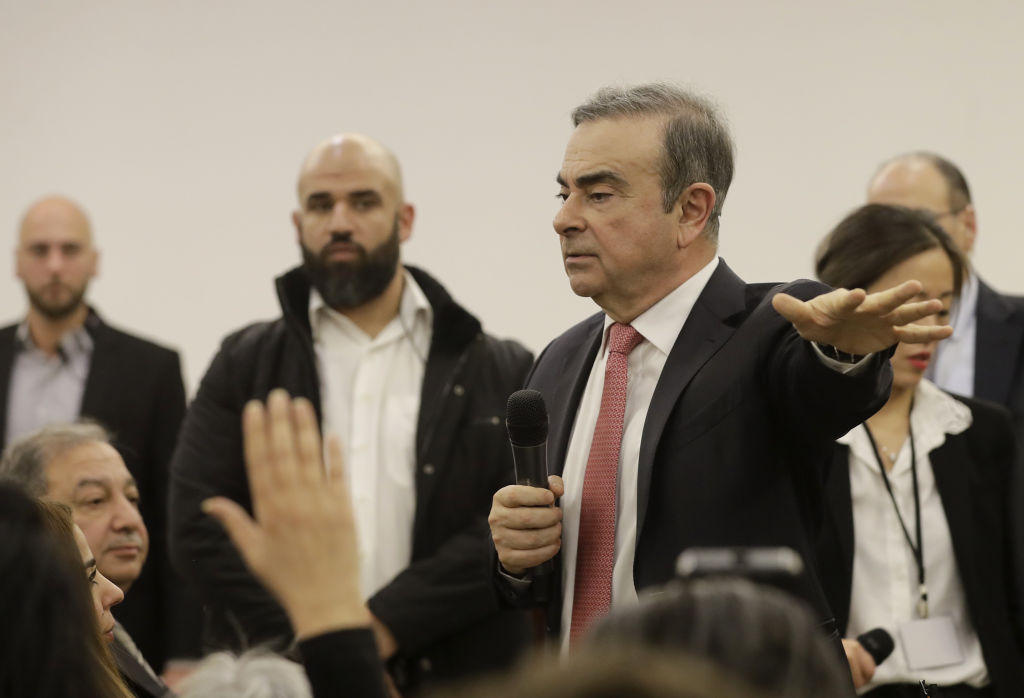
2.22pm: Lebanon state prosecutor summons Ghosn for questioning
While Ghosn was monologue-ing (for more than an hour), Lebanon’s public prosecutor general has summoned him for questioning.
This is over an Interpol red notice issued by Japan which accuses him of crimes committed in Japan and calls for his arrest.
The Lebanese state news agency has said the prosecutor will also hear Ghosn’s statement over a formal legal complaint over meetings with leaders in Israel, which he visited as chief executive of the Renault-Nissan alliance in 2008.
2.18pm: Statement expected from Japanese government
Ghosn told the press conference that he could “name names” from the Japanese government of people colluding with Nissan.
It is understood a statement is expected from Japan imminently.
Nissan is also expected to issue a statement this afternoon.
Ghosn is now taking questions. The first was in Arabic – but involved the word “Netflix”.
The second is in French. He has answered each in the respective languages.
2.08pm: ‘Nothing suspicious about Versailles party’
He is now explaining a lavish party he and his wife Carole hosted at Versailles in 2014 to celebrate the 15th anniversary of Renault and Nissan’s alliance.
The €635,000 blowout did not involve any of Nissan’s senior executives – and only two top Renault executives were there.
He denies there was anything suspicious, saying he chose Versailles because it is a symbol of French beauty.
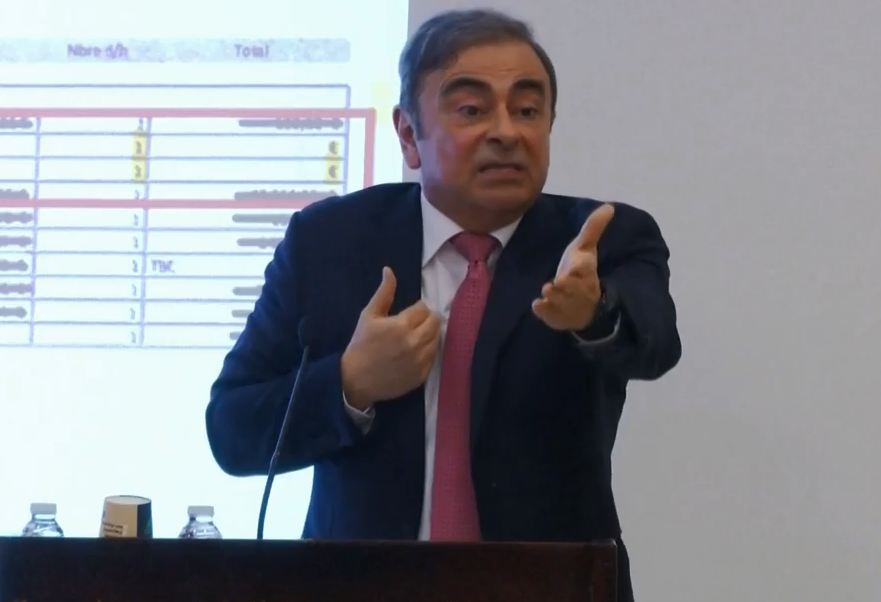
2.01pm: Ghosn claims Nissan spent $200m investigating him
“You’re going to destroy your company, your image, your brand, diverge your attention of top management, risk the alliance – for what?”
He adds that Nissan has haemorrhaged money since he was arrested.
“The market cap decrease of Nissan is more than $10bn since my arrest. More than $40m a day during this period.”
1.45pm: Ghosn claims he was held hostage
Ghosn is now defending his rationale for fleeing Japan while on bail.
“It’s not very difficult to come to the conclusion, you’re going to die in Japan or you’re going to have to get out.”
It is worth noting that earlier, he said: “This (escape) was the most difficult decision of my life but I was facing a system where the conviction rate is 99.4%, and I believe this number is far higher for foreigners.”
He says he was told he faced a five year wait on judgement for the fraud charges brought against him. This meant he needed to get out or he would die there, he adds.
He says that despite having revived Nissan’s fortunes, he was portrayed as “a cold, greedy dictator”.
He goes on to describe this as “a character assassination”.
1.35pm: Ghosn alleges collusion between prosecutors and Nissan
“The collusion between Nissan and the prosecutor is everywhere,” Carlos Ghosn says.
“I have been told this is totally illegal.”
He continues to give an account of his arrest in late 2018, which he calls “staged” by Nissan. At the time, reports circulated of a dramatic arrest aboard a passenger plane – but he disputes this.
“The world was told I was arrested in the airport. Bullshit. I was arrested in the airport.”
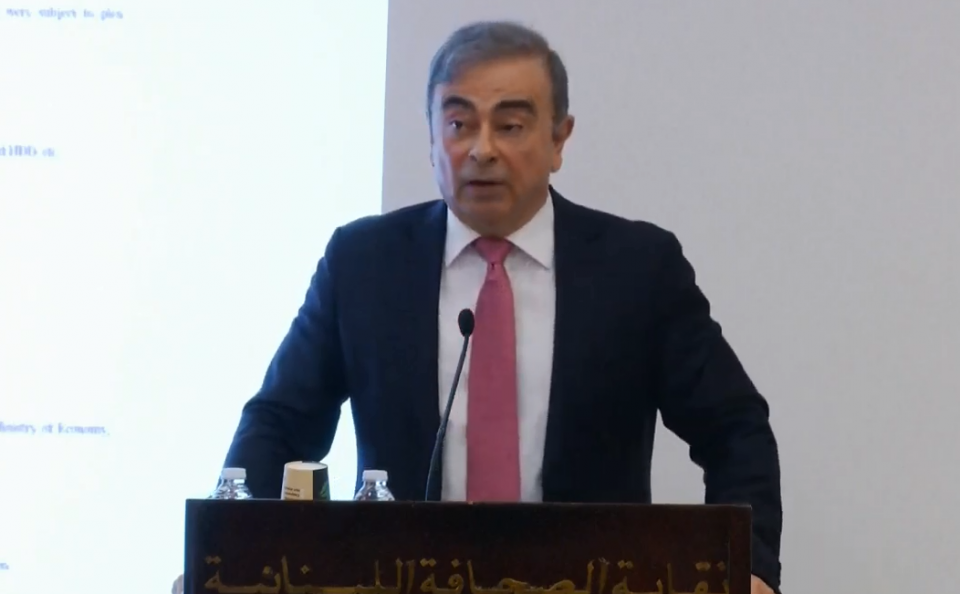
1.30pm: Ghosn points the finger at Nissan execs, lawyers and Japan
So far, Ghosn has blamed a number of people for being “part of the plot”, including the following Nissan executives:
- Hiroto Saikawa (his successor as chief executive)
- Hari Nada (a whistleblower against him)
- Hitoshi Kawaguchi (senior vice-president, external and government affairs)
- Masakazu Toyoda (chair of the nomination committee)
Saikawa resigned last year after admitting he had received payments that flouted company rules.
Read more: Nissan chief resigns after year of scandal and financial turmoil
He has also blamed Japanese prosecutors, for assuming his guilt, as well as law firm Latham and Watkins, which has close ties with Nissan and often represents the firm.
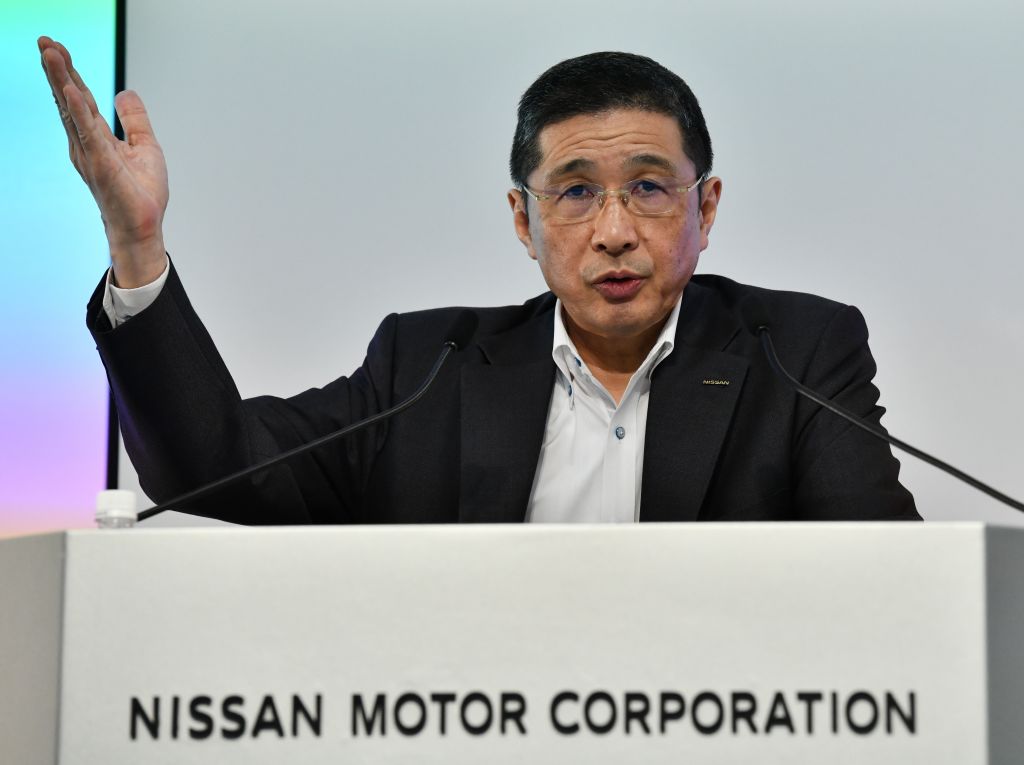
1.20pm: ‘Problems started in 2015’
Ghosn has told reporters he left Nissan – now struggling financially – in a good state when he handed over to his successor as chief executive.
In 2017 and 2018 he said Nissan “started to see decline in the performance in the company”.
He said there were “many tough discussions”.
This started causing disquiet amongst senior management, he said.
He adds that there was bitterness within the Japanese government and Nissan, that the French state had higher voting rights in the Nissan-Renault partnership.
“This is where the problems started”.
“Some of our Japanese friends thought the only way to get rid of Nissan influence on Renault is to get rid of me.”
1.10pm: ‘I am not here to talk about how I escaped’
“I am not here to talk about how I left Japan, although I can understand why you are interested in that,” he says with a raised eyebrow, to laughter in the room.
“I am here to talk about why I left.”
I was presumed guilty by the eyes of the world and presumed guilty by a system designed to … coerce guilty pleas”.
He goes on to criticise a group of people he describes as “unscrupulous and vindictive individuals” at Nissan.
“I did not escape justice, I fled injustice … and persecution.”
He is now laying out how he will explain how he is innocent, before taking questions from the press.
1.06pm: Ghosn: ‘I was brutally taken from my world as I knew it’
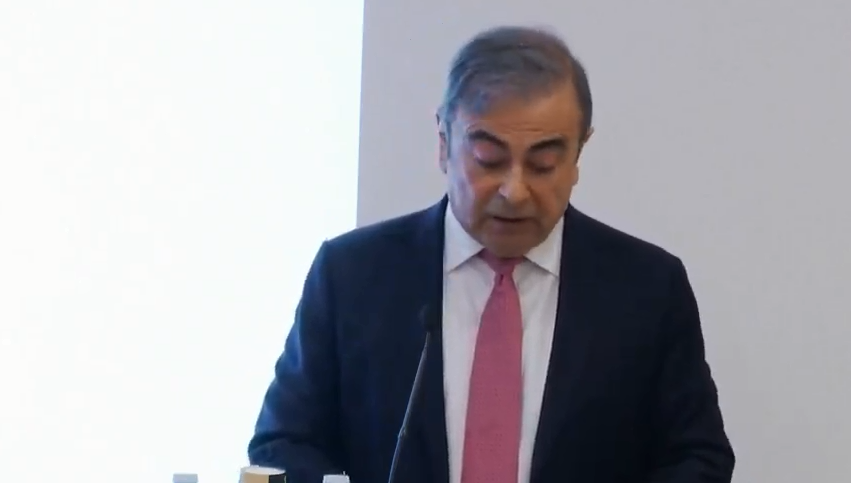
Ghosn begins by speaking of his “unspeakable ordeal” at the hands of Japanese authorities, accusing them of breaching his human rights.
“Since I was brutally taken from my world as I knew it. Ripped from my family, my friends, my communities.
“I have not experienced a moment of freedom since November 19 2018. It is impossible to express the depth of that deprivation, and my profound appreciation to once again be able to be reunited with my family and loved ones.”
He points out that it is a year since he appeared in front of a Tokyo court. Prior to that he had been “interrogated for eight hours a day without any lawyers present,” and kept in solitary confinement.
He called this “a travesty against my human rights and dignity”.
Lawyers told him he should “just confess and it will be over,” he claims.
“There was no end in sight, and those conditions remained more or less the same day after day, week after week, month after month.”
12.56pm: Carlos Ghosn enters the room
Ghosn has appeared, flanked by security guards and aides, and is about to give his first press conference since his escape.
He wears a pink tie and his hair is greying. He is joined by his wife, Carole Ghosn.
12.40pm: Ghosn to seek trial in Lebanon
As the press conference draws nearer, here’s a reminder of the latest update from Ghosn’s legal team, who said he will push for a trial in Lebanon.
They said a trial in the country where Ghosn grew up would involve “either a handing over or co-operation” between the two countries’ justice ministries. Here’s the full story from earlier this morning.
Ghosn has spoken out against perceived injustice in Japan’s legal system, which has a 99 per cent conviction rate.
Japan does not have an extradition treaty with Lebanon, and the country’s justice minister Albert Serhan has said Ghosn, who also holds Lebanese nationality, entered the country legally on a French passport.
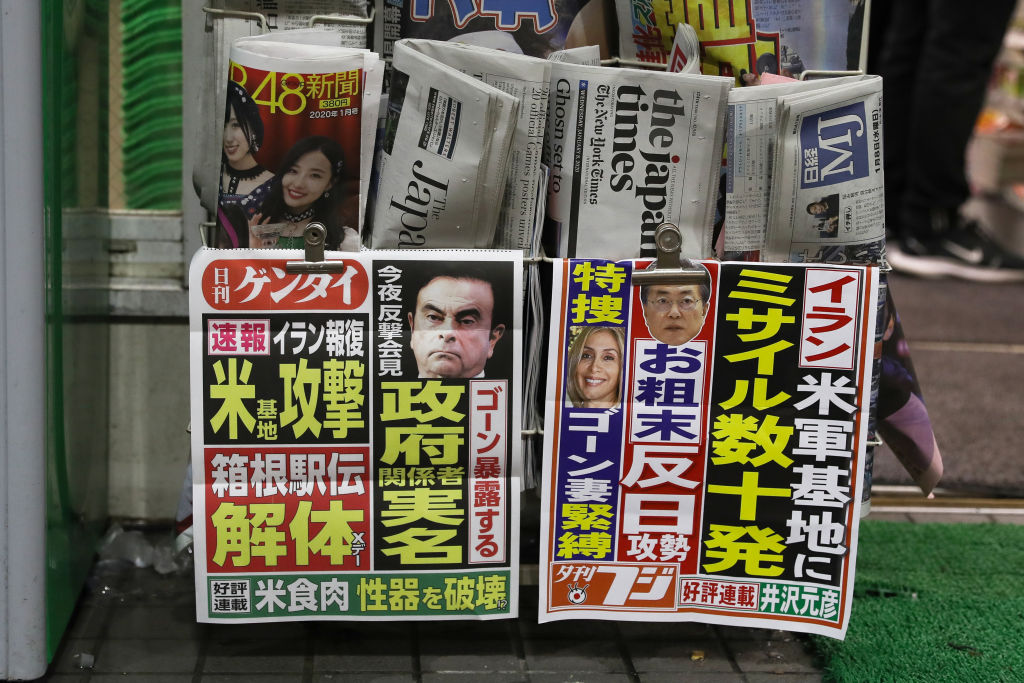
12.30pm: Three big talking points
How did he escape?
Reports have so far pieces together an account of Ghosn walking out of his Tokyo residence – where he was under house arrest – before catching one of Japan’s famous bullet trains to Kyoto.
From there, he reportedly got on a private jet stowed away in a flight case for musical equipment. Sadly, contrary to early reports, this did not involve slipping out of the country in a double bass case.
However, there are many unanswered questions. How was one of Japan’s most high-profile criminal suspects – who was supposedly under 24-hour surveillance – allowed to get on public transport to escape the country?
And who helped him?
Were Nissan and Japanese authorities plotting against him?
Ghosn has repeatedly blamed his arrest in late 2018 on a co-ordinated plot between Nissan, prosecutors and the Japanese government to unseat him from his role as chairman of the car company.
He alleges this is because he was trying to merge Nissan with French manufacturer Renault, which which it already has a global partnership. This is something the Japanese establishment did not want to happen, he has said.
Will the former boss give any hard evidence of a plot to bring about his downfall?
What about the financial misconduct charges?
Ghosn still stands accused of four counts of financial misconduct by the Japanese government.
Meanwhile in the US, he had agreed to pay $1m to the Securities and Exchange Commission over claims he hid more than $140m of his salary at Nissan by not declaring deferred payments he was in line to get when he retired.
Ghosn has never denied the charges – but has never admitted to them either. Why did he decide to defer part of his salary if he had done nothing wrong?
Meanwhile, Ghosn will also have to answer questions about a lavish party he and his wife Carole hosted at Versailles in 2014 to celebrate the 15th anniversary of Renault and Nissan’s alliance.
The €635,000 blowout did not involve any of Nissan’s senior executives – and only two top Renault executives were there.
Why did the couple spend so much money on the event?